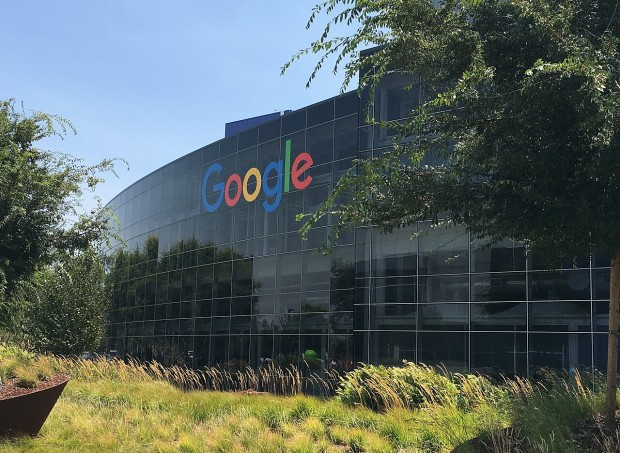Google Loses Landmark Antitrust Case: A New Era for Tech Regulation

(Photo : https://en.wikipedia.org/wiki/Google#/media/File:Googleplex_HQ_(cropped).jpg)
August 5, 2024 - In a historic ruling for the technology sector, a US district judge Amit P. Mehta ruled that Google has engaged in an illegal monopoly by operating a search and advertising monopoly, and ordered the company to spin off and divest Alphabet's numerous search and advertising businesses. The decision ends a decade-long lawsuit brought by the US Department of Justice and delivers a decisive blow to the most profitable company in US corporate history. For those who follow antitrust news, it's not difficult to imagine how we got to this point. For more than a decade, giant tech companies have systematically bought, squashed, or otherwise taken over competitors. We've witnessed acquisitions that made Oath (formerly AOL) the third-largest ad company worldwide in 2017; AT&T the second-largest mobile network; and Facebook the sixth-largest media company.
The Ruling
Judge Mehta ultimately determined that Google used anti-competitive tactics to maintain its monopoly in the important search engine business. The DOJ and certain states claimed that Google paid around $11 billion to Apple, Samsung, and other manufacturers to ensure Google's search engine remains the default search engine for all Apple, Samsung, and other manufacturers' phones and browsers. Such payments seem anti-competitive because they eliminate competition.
Google is a monopolist, and it has acted like one to maintain its monopoly.
Understanding Antitrust Laws
Antitrust law enjoins incumbents to keep reflection and innovation at the heart of their business operations, lest they unwittingly act in ways that suggest they do not intend to share these advantages with their rivals. In rejecting Google's distorting take on the law and aiding in some way workable remedies, Judge Mehta has done well to put these concerns back at the heart of the digital marketplace.
Impact on the Tech Industry
The ruling is the most significant antitrust action in a generation against a modern-era technology company and sets the stage for potential further regulation of other tech giants like Apple, Amazon, and Meta (formerly Facebook). It showcases the rising tide of scrutiny that Big Tech faces for its market power and the efforts of regulators to cast a cooler light to regulate those companies' influence.
It's also part of a larger push by the DOJ to chasten monopolistic practices in the tech sector. Now that the court has decided against Google, the company will have to face another trial it launched against it this spring over its advertising technology.
Google's Defense and Future Implications
During the trial, Google advanced the arguments that its dominant position was due to the high quality and popularity of its search engine - which customers prefer over rivals in uncoerced, repeat decisions - and that its agreements with device manufacturers were non-discriminatory exclusions rooted in competition, not monopoly. Judge Mehta's opinion shines a spotlight on the reality with his exhaustive description of substantial payments by Google for its position as default search, such as the reported $20 billion that Google paid Apple in 2022 to continue to serve as the default search engine on iPhones.
What ultimately happens to Google's business model is unclear, as are the remedies the court will mandate. Options range from a structural remedy that would break up its business units to a behavioral remedy - such as restrictions on its contracts with device manufacturers - designed to restore competitive balance and prevent future anti-competitive conduct. Done correctly, this could have serious knock-on effects for the rest of the tech ecosystem, posting new rules for digital-era monopolies.
Broader Legal and Market Reactions
This historic decision may well affect other antitrust cases and enforcement actions around the world, and it comes at an opportune time. With tech companies increasingly relying on artificial intelligence (AI) to enhance their services, the decision could alter the competitive dynamics in this emerging space, particularly between Google and its competitors such as Microsoft.
Shares in Alphabet fell by 4.5 percent, and Apple's by 3.5 percent, following the news. The ruling has also set off calls for tougher regulatory regimes to combat the growing monopolistic power of digital businesses.
No company, no matter how big and powerful, can stand outside the law in the United States' new antitrust policy, says Jane Doe, an antitrust professor at Harvard Law School. That was the message sent by the FTC's ruling that, barring appeals, requires Google to reinvent the way it works with its partners, said John Smith, an analyst at a tech industry think tank. "This could be a turning point in how we regulate the tech industry generally," he said.
Conclusion
It's safe to suggest that Judge Mehta took a brick foundation of monopolistic behavior by platforms whose priority is remaining unchallenged market rulers. And now, as the case shifts into remedy mode, the tech world is eager to see how the ruling transforms the future course of digital competition and regulatory control. Google's and tech's business has been built on the foundation that antitrust laws could never gain ground against the industry that Silicon Valley built. Judge Mehta's ruling has uprooted that foundation.
For further details, you can read the full articles on the following sources:
- Reuters - https://www.reuters.com/legal/us-judge-rules-google-broke-antitrust-law-search-case-2024-08-05/
- The Verge - https://www.theverge.com/2024/8/5/24155520/judge-rules-on-us-doj-v-google-antitrust-search-suit
- Bloomberg Law - https://news.bloomberglaw.com/antitrust/google-loses-doj-antitrust-suit-over-search
- CNN - https://www.cnn.com/2024/08/05/business/google-loses-antitrust-lawsuit-doj/index.html
- The Guardian - https://www.theguardian.com/technology/article/2024/aug/05/google-loses-antitrust-lawsuit
- Politico - https://www.politico.com/news/2024/08/05/google-antitrust-lawsuit-00172678













